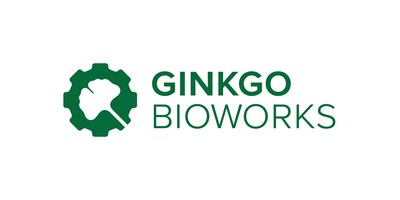Ginkgo Bioworks Awarded $9.4 Million in Partnership with Carnegie Mellon University to Develop Implantable Cell-Based Bioelectronic Devices for Disease Treatment Under ARPA-H's REACT Program
Rhea-AI Summary
Ginkgo Bioworks (NYSE: DNA) has been awarded a $9.4 million subcontract in partnership with Carnegie Mellon University to develop bioelectronic cell-based devices for treating hormone disorders under ARPA-H's REACT program. The BIO-INSYNC project focuses on creating implantable devices that can produce therapeutic molecules and monitor disease biomarkers in real-time for at least one year after implantation.
The initiative will initially target thyroid disorders, developing systems to measure thyroid hormone levels and produce required doses. Patients and healthcare providers will be able to monitor and control the treatment via smartphone. The project combines Ginkgo's expertise in mammalian cell and iPSC engineering with Carnegie Mellon's bioelectronics capabilities, along with researchers from the University of Pittsburgh, University of Florida, and UC Santa Cruz.
Positive
- Secured $9.4 million in funding through ARPA-H subcontract
- Partnership with prestigious academic institutions expands market reach
- Development of innovative long-term implantable treatment solutions
Negative
- Project success and commercial viability remain uncertain
- Long development timeline before potential revenue generation
News Market Reaction 1 Alert
On the day this news was published, DNA gained 1.91%, reflecting a mild positive market reaction.
Data tracked by StockTitan Argus on the day of publication.
Ginkgo Bioworks to apply its mammalian cell engineering expertise to develop new cell-based systems for treating and monitoring endocrine disorders
Chronic diseases that require continuous monitoring and treatment, such as thyroid disorders, diabetes, and obesity affect millions globally, presenting a significant public health challenge. Through this collaboration, Ginkgo will leverage its industry-leading capabilities in mammalian cell engineering and induced pluripotent stem cell (iPSC) engineering to create cells that produce and deliver therapeutic molecules—such as hormones—and/or monitor the disease status.
The Biointegrated Implantable Systems for Cell-based Sensing and Therapy (BIO-INSYNC) project focuses on implantable bioelectronic devices that utilize engineered cells to produce therapeutic molecules on demand and/or to measure disease biomarkers in real time. These devices are expected to function for at least a year after implantation. The team will demonstrate their platform technology using thyroid disorders, including hypo- and hyperthyroidism, as sample diseases. The systems will measure the levels of thyroid hormones and/or produce the required dose of thyroid hormones. The patient and the healthcare provider can monitor disease and control drug delivery status remotely using a smartphone.
"This is an exciting opportunity to support Carnegie Mellon's team on ARPA-H's REACT program," said Jesse Dill, Business Development Lead at Ginkgo Bioworks. "Chronic diseases that require continuous management cause a high public health burden, and bioelectronic devices like those targeted in the REACT program have the potential to unlock new, convenient ways to monitor and treat these conditions. We are excited to apply our expertise in mammalian cell engineering and iPSC-derived tissue differentiation to this challenge, in partnership with our team members."
Mike Nehil, Senior Director of Mammalian Engineering at Ginkgo Bioworks, added, "Our advanced capabilities in mammalian cell engineering make us a strong partner for academic-led teams aiming to push the boundaries of medical innovation. We look forward to contributing to this significant project and advancing our iPSC platform."
"We are thrilled to partner with Ginkgo Bioworks on this groundbreaking initiative," said Dr. Burak Ozdoganlar, Ver Planck Endowed Chair Professor of Mechanical Engineering at Carnegie Mellon University, who leads the BIO-INSYNC project. "By combining our expertise in bioelectronics and tissue engineering with Ginkgo's leading cell engineering platform, we aim to create transformative therapies that could redefine the management of hormone disorders. This multidisciplinary project will also include researchers from the University of
This partnership underscores Ginkgo's commitment to collaborating with academic institutions and innovative funding agencies to address complex health challenges. By participating in this groundbreaking program, Ginkgo plans to further develop and demonstrate its capabilities in engineering mammalian cell systems to treat complex diseases.
To learn more about how you can bring innovative biological solutions to life, please visit our page for Ginkgo Cell Therapy Services.
About Ginkgo Bioworks
Ginkgo Bioworks is the leading horizontal platform for cell programming, providing flexible, end-to-end services that solve challenges for organizations across diverse markets, from food and agriculture to pharmaceuticals to industrial and specialty chemicals. Ginkgo Biosecurity is building and deploying the next-generation infrastructure and technologies that global leaders need to predict, detect, and respond to a wide variety of biological threats. For more information, visit ginkgobioworks.com and ginkgobiosecurity.com, read our blog, or follow us on social media channels such as X (@Ginkgo and @Ginkgo_Biosec), Instagram (@GinkgoBioworks), Threads (@GinkgoBioworks), or LinkedIn.
GINKGO BIOWORKS INVESTOR CONTACT:
investors@ginkgobioworks.com
GINKGO BIOWORKS MEDIA CONTACT:
press@ginkgobioworks.com
Forward-Looking Statements of Ginkgo Bioworks
This press release contains certain forward-looking statements within the meaning of the federal securities laws, including statements regarding the capabilities and potential success of the partnership and Ginkgo's cell programming platform. These forward-looking statements generally are identified by the words "believe," "can," "project," "potential," "expect," "anticipate," "estimate," "intend," "strategy," "future," "opportunity," "plan," "may," "should," "will," "would," "will be," "will continue," "will likely result," and similar expressions. Forward-looking statements are predictions, projections and other statements about future events that are based on current expectations and assumptions and, as a result, are subject to risks and uncertainties. Many factors could cause actual future events to differ materially from the forward-looking statements in this press release, including but not limited to: (i) volatility in the price of Ginkgo's securities due to a variety of factors, including changes in the competitive and highly regulated industries in which Ginkgo operates and plans to operate, variations in performance across competitors, and changes in laws and regulations affecting Ginkgo's business, (ii) the ability to implement business plans, forecasts, and other expectations, and to identify and realize additional business opportunities, (iii) the risk of downturns in demand for products using synthetic biology, (iv) the uncertainty regarding the demand for passive monitoring programs and biosecurity services, (v) changes to the biosecurity industry, including due to advancements in technology, emerging competition and evolution in industry demands, standards and regulations, (vi) the outcome of any pending or potential legal proceedings against Ginkgo, (vii) our ability to realize the expected benefits from and the success of our Foundry platform programs, (viii) our ability to successfully develop engineered cells, bioprocesses, data packages or other deliverables, and (ix) the product development or commercialization success of our customers. The foregoing list of factors is not exhaustive. You should carefully consider the foregoing factors and the other risks and uncertainties described in the "Risk Factors" section of Ginkgo's annual report on Form 10-K filed with the
![]() View original content to download multimedia:https://www.prnewswire.com/news-releases/ginkgo-bioworks-awarded-9-4-million-in-partnership-with-carnegie-mellon-university-to-develop-implantable-cell-based-bioelectronic-devices-for-disease-treatment-under-arpa-hs-react-program-302333762.html
View original content to download multimedia:https://www.prnewswire.com/news-releases/ginkgo-bioworks-awarded-9-4-million-in-partnership-with-carnegie-mellon-university-to-develop-implantable-cell-based-bioelectronic-devices-for-disease-treatment-under-arpa-hs-react-program-302333762.html
SOURCE Ginkgo Bioworks








